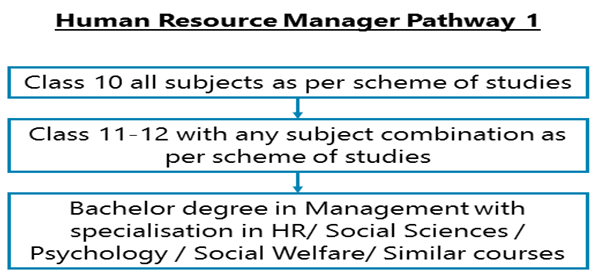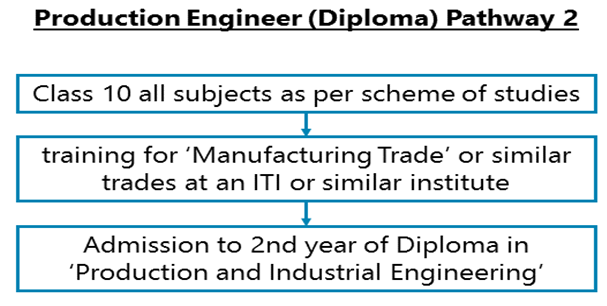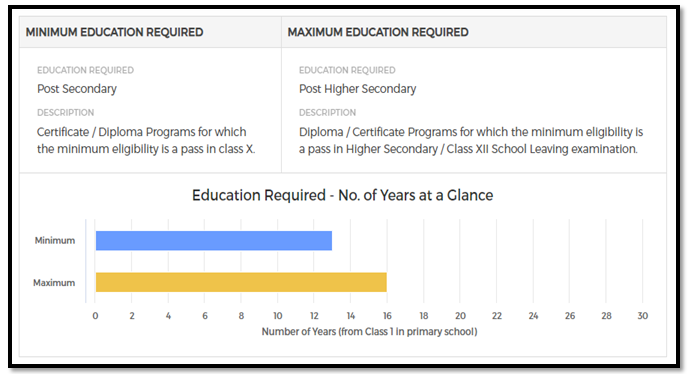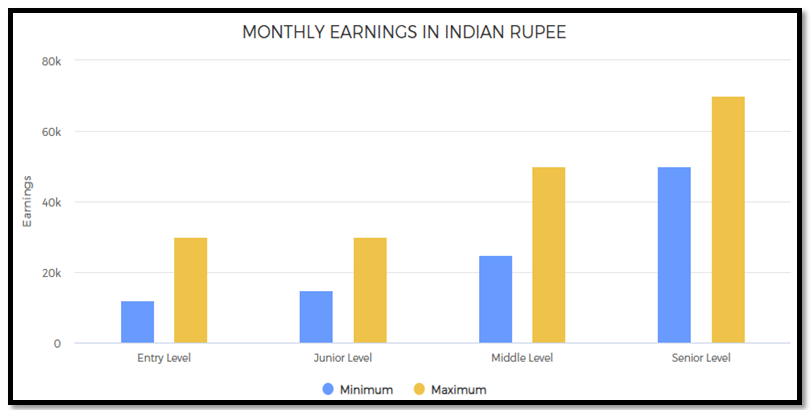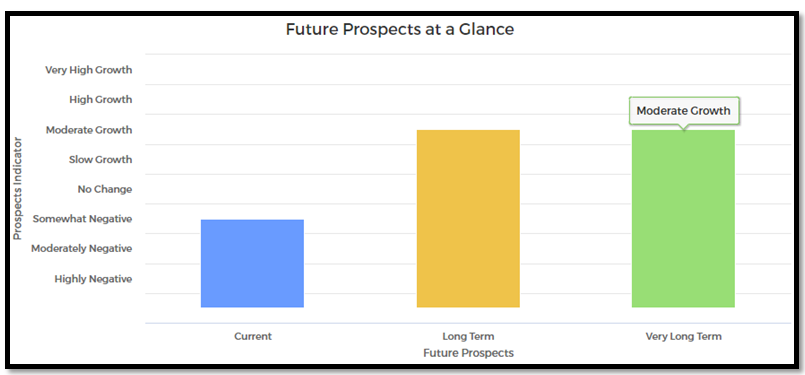Production Engineer (Diploma)
Entry Level Qualification
10, 12
Career Fields
Engineering & Technology
For Specially Abled






Career Entrance Exam
About Career
As a Production Engineer after your Diploma, you will be assisting senior engineers to monitor and supervise manufacturing processes as well as the production of various goods in large factories and warehouses.
Production engineers generally work in manufacturing and engineering plants managing factory workers to ensure that they are all working as a team. They may also work in offices inside a plant/factory.
You will mainly be working in large industrial plants to ensure that all products are being manufactured with maximum efficiency and the quality of the final output is matched with industry standards. You will have to make sure that all processes are according to planned protocols (rules) using the appropriate technology. You will be responsible for almost every small detail during production.
As a Production Engineer, you will have to work with several other engineers, technicians and other professionals as part of a team. Production engineers have to work full time which may be over 40 hours per week. They may also be involved in providing training to junior factory workers regarding how to follow protocols and deadlines.
Key Roles and Responsibilities:
As a Production Engineer, you will be engaged with one or more of the following roles and responsibilities: -
1. You will have to understand engineering diagrams and processes relating to production systems, resources and environment like industrial machinery design, raw material processing, product quality, etc.
2. You will be helping senior engineers in designing, evaluating, installing, operating, or maintaining the production systems or processes so as to meet requirements.
3. You will be conferring with senior engineers or other personnel and help in planning and coordinating with production engineering processes to produce high-quality products.
4. You will work with senior engineers in investigating problems and analyzing their root causes as well as recommending remedial measures.
5. You will be assisting senior engineers in introducing improvements in the production processes to utilize equipment and materials effectively thereby maximizing output.
6. You will be helping in supervising the work of other junior technicians, as well as training the team of workers on quality assurance and safety protocols.
7. You will be following established safety procedures and environmental regulations to prevent dangerous hazards as you will mostly be working in an accident-prone area with large machines.
8. You will participate in conducting research and analytical studies for developing new concepts in the field of production and industrial engineering.
9. You will enhance both your professional and technical knowledge (about new technologies and competitive products) by reviewing existing literature, discussing with colleagues, attending educational seminars and conferences, reviewing professional publications, etc.
PARTICULARS | DESCRIPTION |
Name | Production Engineer (Diploma) |
Purpose | Process Optimization |
Career Field | Engineering & Technology |
Required Entrance Exam | OJEE, CUET UG, JEE MAIN BE/BTECH |
Average Salary | 150000 - 300000 Rs. Per Year |
Companies For You | Automobile / Auto Anciliary / Auto Components, Iron and Steel & Many More |
Who is Eligible | Class 12th Pass |
Career Entry Pathway
Class 10 all subjects as per scheme of studies - Diploma in Production and Industrial Engineering
After completing Class 10 all subjects as per scheme of studies, you can do a Diploma in Production and Industrial engineering or similar from any Polytechnic college or an equivalent institute. Diploma is a 3-year course. Diploma may also be done as a sandwich course (3.5 years) or part-time (4 years). Sandwich courses have periods of industrial training in between.
Class 10 all subjects as per scheme of studies - training for ‘Manufacturing Trade’ or similar trades at an ITI or similar institute – admission to 2nd year of Diploma in ‘Production and Industrial Engineering’
After completing Class 10 all subjects as per scheme of studies, you can go for training at any Industrial Training Institute (ITI), National Skill Training Institute (NSTI), Regional Vocational Training Institute (RVTI), National Vocational Training Institute (NVTI), Industrial Training Center (ITC) or other vocational institutes for ‘Manufacturing Trade’, ‘Basic Quality Control’, ‘Welding’, ‘Machine Tools’, ‘Operator in Chemical Plant’, ‘Electronics’, ‘Garment Production’, ‘Computer Aided Design and Manufacturing’, ‘Automobile Trades’, ‘Aviation Technologies’, ‘Construction Engineering and Technologies’, ‘Food Production’ or similar trades. You will sit for All India Trade Test (AITT) to get a National Trade Certificate (NTC) after this course. This exam is held twice a year in the months of February and July. Then you can be admitted directly to the 2nd year of Production and Industrial Engineering Diploma or similar in Polytechnic colleges or equivalent institutions through lateral entry route. Minimum duration of the ITI training has to be 2 years.
Required Qualification & Competencies
After completing Class 10, you need to go for a Diploma course in Production and Industrial Engineering or similar specializations from any Polytechnic college or similar institutions located at a number of cities and towns across the country. These Diploma courses are output-oriented technical skill training programs with the objective of turning a student or non-worker to a professional.
After your Diploma, you have an option to undergo National Employability Enhancement Mission (NEEM) training in any related trade with a Society / Trust / Company registered as a NEEM facilitator and approved by AICTE (All India Council of Technical Education).
This on-the-job (OJT) training may be for 3 to 36 months and is completely decided by the company imparting the training. However, you may or may not be retained as a permanent employee after the training. This training contract is not a guarantee of employment but enables an individual to find numerous work opportunities in future.
COMPETENCIES REQUIRED
1. You should have interests for Realistic Occupations. Realistic occupations involve more practical and hands-on activities than paperwork or office work. Realistic occupations often involve physical activities for getting things done using various tools and equipment.
2. You should have interests for Conventional Occupations. Conventional occupations involve repetitive and routine tasks as well as fixed processes or procedures for getting things done. These occupations involve working more with data, systems, and procedures and less with ideas or creativity.
3. You should have interests for Investigative Occupations. Investigative occupations involve working with ideas and quite a lot of thinking, often abstract or conceptual thinking. These involve learning about facts and figures; involve the use of data analysis, assessment of situations, decision making and problem-solving.
4. You should have knowledge of Production and Processing - raw materials, production machinery, production systems, production processes, quality control, and other techniques for manufacturing or construction and distribution of goods.
5. You should have knowledge of Engineering and Technology - various applications of one or more branches of Engineering Science & Technology to manufacture and produce various goods or construct or erect various structures. This includes knowledge about design, development, prototype testing, manufacturing, construction, installation, repair and maintenance.
6. You should have knowledge of Technical and Engineering Design - Knowledge of various techniques, methods, specifications and tools for designing, developing, testing, and evaluating integrated systems for managing industrial production processes, manufacturing plants, structures, and systems. This includes studying blueprints, drawing, and models.
7. You should have knowledge of Mechanical Engineering & Technology - Mechanical Engineering & Technologies which include design, development, testing, manufacturing, installation, operations, repair and maintenance of different machinery, devices, equipment and tools.
8. You should have knowledge of Mathematics - Knowledge of arithmetic, algebra, geometry, and other mathematical disciplines and their applications.
9. You should have Active Listening Skills - Giving full attention to what other people are saying, understanding the points being made by others, asking questions, etc.
10. You should have Critical Thinking Skills - analysis of complex situations, using logic and reasoning to understand the situations and take appropriate actions or make interpretations and inferences.
11. You should have complex Problem Solving Skills - analysis and understanding of problems, evaluating various options to solve the problems and using the best option to solve the problems.
12. You should have Judgment and Decision Making Skills - Skills in considering pros and cons of various decision alternatives; considering costs and benefits; taking appropriate and suitable decisions.
13. You should have Instruction Skills - training others how to do something.
14. You should have Active Learning Skills - Focused and continuous learning from various sources of information, observation and otherwise for application in getting work done.
15. You should have Mathematical Reasoning Ability - to choose the right mathematical methods or formulas to solve a problem.
16. You are always or mostly careful about your actions and behavior.
17. You are practical always or in most situations.
18. You are always or mostly disciplined in your action and behavior.
19. You are always or mostly organized in your day-to-day life and activitiesThese are some of the industries that will require your services as a Production Engineer:
Career - Job Opportunities & Profiles
These are some of the industries that will require your services as a Production Engineer:
1. Construction / Engineering / Cement / Metals
2. Architecture / Interior Design
3. Automobile / Auto Anciliary / Auto Components
4. Industrial Products / Heavy Machinery
5. Electricals / Switchgears / Semiconductors / Electronics
6. Textiles / Garments / Accessories
7. Consumer Electronics / Appliances / Durables
8. FMCG / Foods / Beverage
9. Pharma / Biotech
10. Iron and Steel
11. Printing / Packaging
12. Oil and Gas / Energy / Power / Infrastructure
CAREER GROWTH
You can certainly grow through job roles like Senior Production Engineer, Senior Industrial Engineer, Production Manager, Project Manager, Chief Supervisor, Production Line Supervisor, Industrial Structure Design Head etc.
Salary Offered
1. In the entry-level jobs: You may expect to get about Rs. 12,000.00 –20,000.00 a month or more.
2. Salaries increase with your work experience and as you get promoted.
3. After you’ve gained experience of 1-5 years you may expect Rs. 15,000.00 – 30,000.00 a month or more.
4. With 6-12 years of work experience, you may expect to get about Rs. 25,000.00 – 50,000.00 a month or more.
5. With 12-15 years of work experience, you may expect to get about Rs. 50,000.00 –70,000.00 a month or more.
MONTHLY EARNINGS IN INDIAN RUPEE
1. Entry level: 0 - 2 years of work experience
2. Junior Level: From 1 to 12 years of work experience
3. Mid-Level: From 5 to 20+ years of work experience
4. Senior Level: From 10 to 25+ years of work experience (there could be exceptions in some high-end technical, financial, engineering, creative, management, sports, and other careers; also in the near future, people will reach these levels much faster in many careers and in some careers, these levels will have no meaning as those careers will be completely tech skill driven such as even now, there is almost no level in a Cyber Security Expert’s job)
Work Activities
1. Inspecting equipment, systems, structures, and materials - Inspecting equipment, systems, structures, and materials to ascertain quality, performance, defects, causes of errors, etc.
2. Identifying objects, actions, and events - Identifying various characteristics of objects; observing and understanding actions and events; understanding changes in actions and events.
3. Making decisions and solving problems - Analysis of data and information; evaluation of alternative decisions and results of decisions; taking the right decisions and solving problems.
4. Getting Information and learning - Observing, hearing, reading, using computers, or otherwise obtaining information and learning from it.
5. Managing and supervising - Managing and supervising work of others; setting goals; giving instructions; monitoring work performance, etc.
6. Monitoring use of resources - Monitoring and controlling use of resources like land and materials as well as spending of money.
7. Organising, planning and prioritising tasks - Planning and organising tasks in order to achieve work goals; prioritising tasks to achieve goals and making the best use of the time available.
8. Processing information - Searching, compiling, tabulating, calculating, auditing, verifying or otherwise dealing with information processing including data entry, transcription, recording, storing and maintaining databases.
9. Analyzing and interpreting data and information - Analysis of data and information to find facts, trends, reasons behind situations, etc.; interpretation of data to aid in decision making.
10. Updating and using relevant knowledge - Keeping updated with the latest knowledge relevant to your fields of work and use of the relevant knowledge in getting things done.
11. Communicating with co-workers and others - Communicating with people in writing, verbally or otherwise inside your workplace and various other people who have professional relationships with your place of work including vendors, government officials, etc. or with people at large.
12. Working in a team - Working in a team of people; developing team; maintaining professional relationships among team members.
Future Prospects
You can expect a bright future in this field as the industry growth prospects are encouraging. India is predicted to become the world’s 5th largest economy and reach the 4.7 trillion US Dollars mark. India is expected to be ranked at 5th position in the list of largest manufacturing countries in the world. The Manufacturing sector in India has the potential to touch the mark of 1 trillion US Dollars by 2025. The Auto-Components industry in India is expected to witness a turnover of 100 billion US Dollars. The construction equipment market is expected to touch 7 billion US Dollars mark.
The capital goods industry turnover is forecasted to reach the mark of 115.17 billion US Dollars by 2025. The Indian Appliance and Consumer Electronics Industry has shown tremendous growth to more than 2 trillion Indian Rupees (more than 30 billion US Dollars). It is expected to reach more than 3 trillion Indian Rupees (more than 45 billion US Dollars). By 2025, India will grow to be the 3rd largest construction market in the world.
The construction sector in India employs more than35 million people currently. Threat was less than 3%. The overall volume of employment in the Handlooms and Handicrafts Sector is expected to reach about 17.79 million from approximately 13.93 million.
FUTURE PROSPECTS AT A GLANCE


